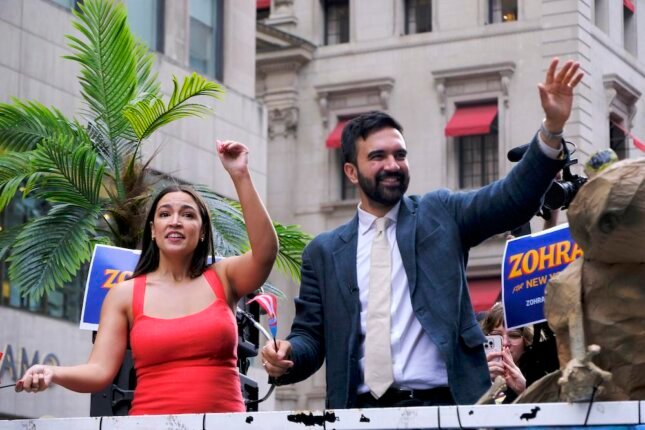Zohran Mamdani’s historic win in New York City’s Democratic mayoral primary has been met not only with celebration among progressives but also with a disturbing spike in Islamophobic hate online.
Mamdani, a 33-year-old state assemblyman and the son of Indian immigrants born in Uganda, became the Democratic frontrunner for NYC mayor after defeating former Governor Andrew Cuomo. If successful in November, he would become the city’s first Muslim and Indian American mayor.
But the day after his victory, anti-Muslim rhetoric online exploded. CAIR Action — the advocacy wing of the Council on American Islamic Relations — recorded at least 127 hate-related incidents tied to Mamdani or his campaign in just 24 hours. This represents a fivefold jump from earlier daily averages. In total, the group identified over 6,200 hostile posts with Islamophobic language that day alone, 62% of them originating from X.
The attacks have not been limited to anonymous accounts. Prominent conservatives have weighed in harshly. Donald Trump Jr. insinuated on social media that Mamdani’s election equates to voting for 9/11, while Rep. Marjorie Taylor Greene shared an AI image of the Statue of Liberty clad in a burqa — sparking outrage among civil rights groups.
CAIR Action has called on political leaders to denounce such bigotry without hesitation. “This is a time for unity, not silence,” said the group’s executive director, Basim Elkarra. “Islamophobia must be rejected across party lines.”
Mamdani’s outspoken support for Palestinian rights has also drawn accusations of antisemitism from Republican critics, especially in the wake of Israel’s response to the Hamas attacks of October 2023. However, Mamdani has been clear in rejecting antisemitism, a stance supported by Jewish progressive figures like NYC Comptroller Brad Lander.
According to rights groups, this pattern of attacks mirrors those seen against other high-profile South Asian or Muslim figures — including Vice President Kamala Harris and Representatives Ilhan Omar and Rashida Tlaib. Manjusha Kulkarni, co-founder of Stop AAPI Hate, highlighted this disturbing trend of racialized and religious targeting in politics.
The NYPD has confirmed that its hate crimes unit is actively investigating threats against Mamdani. Meanwhile, civil rights advocates continue to point out that rising political polarization, especially over issues like the Israel-Gaza war, has triggered both Islamophobic and antisemitic acts nationwide — from stabbings to shootings.
Mamdani and other pro-Palestinian advocates maintain that legitimate policy criticism must not be misrepresented as hate. As Mamdani’s campaign looks toward November, supporters hope that voters will choose leadership over fear, and inclusion over division.



